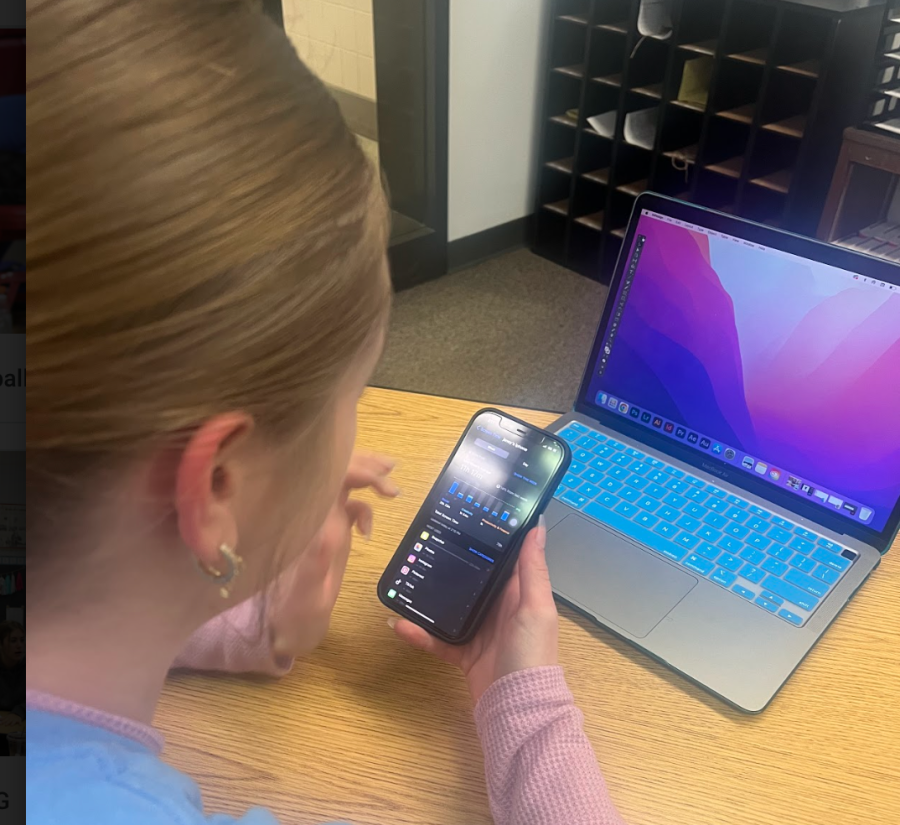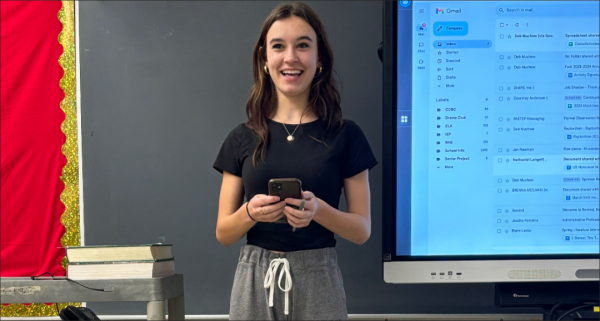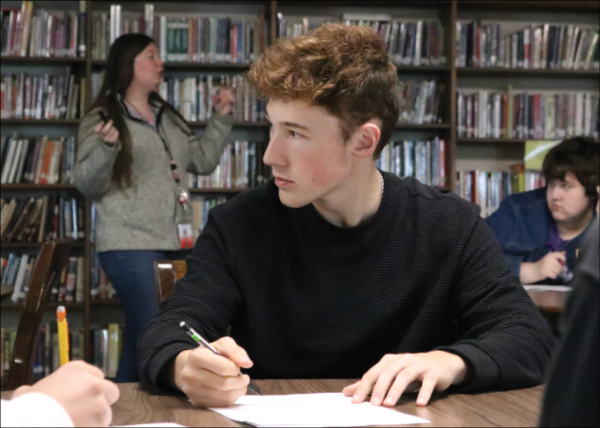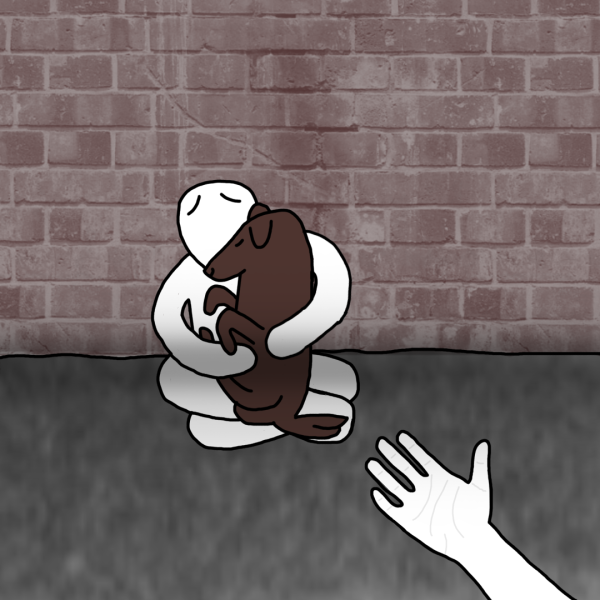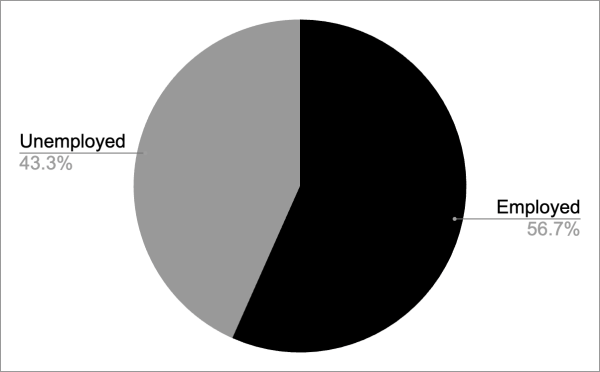Less screen time allows fulfillment and focus
The typical person has about 16 hours of time awake each day, and many work or go to school for about 6-8 of those hours, leaving them with a small amount of time to themselves. According to the Centers for Disease Control and Prevention (CDC), teenagers between 15 and 18 spent about 7.5 hours on some kind of media device daily. That’s nearly half the time they are awake, spent in front of some kind of screen. With a new year underway, it is about time people take a hold of their own lives and no longer allow screens to control them.
“ I think people could spend less time mindlessly scrolling, and more time doing other things,” senior Mason Geibel said.
Lessening screen time use isn’t always an easy task as entertainment media, especially social media, can be highly addictive. TikTok, in particular, is an app that has become extremely popular. A study by Brown University found that users spent an average of 46 minutes daily on the app and opened the app 8 times throughout the day. TikTok’s feedback loop releases dopamine to the users, and an endless scrolling effect can keep users engaged for hours.
“I try not to go on TikTok too much because that’s the biggest problem for sure. I caught myself starting to scroll and immediately put my phone away,” senior Edna Arredondo said.
Other students utilize screen time limits in order to limit their time on certain apps they find to be detrimental, but even following limits can be difficult.
“I hit ignore twice a day on my screen time limits for Snapchat and TikTok, but I have been trying to stop,” senior Brandi Bonzo said.
Limiting screen time can be beneficial for various reasons. It re-aligns focus and allows for more beneficial use of time.
“I think the importance of less screen time is having more time to do other things that do not involve other technology. Most screen time in my experience has not been very beneficial to me. It would be more beneficial to read a book or go outside rather than scroll through TikTok,” senior Connor Tavern said.
Activities outside of scrolling on a phone or binge-watching a show will leave individuals feeling more fulfilled and focused. If one has a difficult time breaking away from their phone, it may be beneficial to curate their social media feed to include their interests. For example, if one wants to exercise more, they may want to flood their feed with workout content.
“Finding other things to do instead of scrolling, like reading or baking, helps me stay off my phone,” Arredondo said.
Other students find that physically putting their phones in a different room is beneficial to their focus.
“Whenever I put my phone in another room, I get 100% more efficient with what I do,” senior Vincenzo Fiorenza said.
Keeping one’s phone away from them is a crucial part of getting work done. It is extremely easy to use social media as a way of procrastination, and when social media is limited there is much more efficiency.
“I notice I can finish things much faster when I only focus on my homework. I feel like my work is better when I can just focus on just that one thing,” Arredondo said.
Moreover, limiting screen time can be a strenuous task, but it is crucial to focus and gain new hobbies and skills. Limiting screen time does not have to be drastic, just cutting back screen time for an hour or two can allow for a healthier and more productive life.



